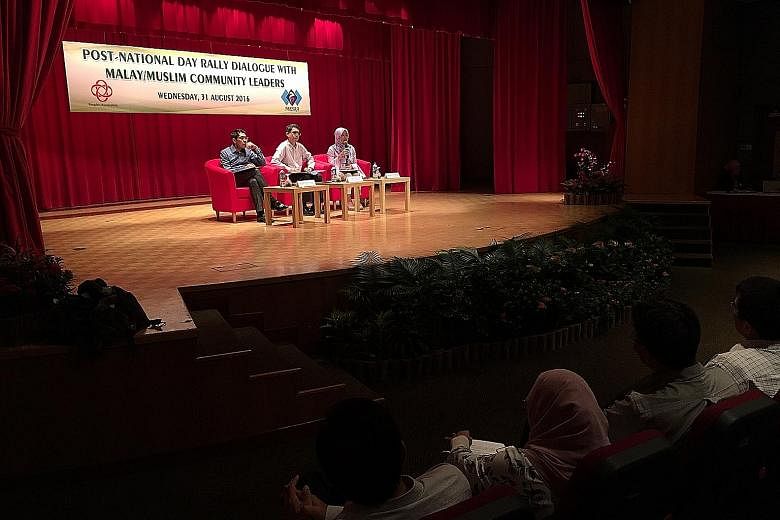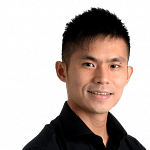Malay/Muslim grassroots leaders yesterday called on the community's social and cultural groups to go beyond their areas of focus and help members adapt to a future economy that is increasingly reliant on technology.
For instance, Malay activity groups in community clubs across the island can help raise awareness of SkillsFuture courses so that more Malay/Muslims will embrace lifelong learning, said grassroots leader Isiah Majid, 54.
"The MAECs are more focused on heritage and cultural issues now but they must move forward to help the community adapt," she said, referring to the acronym for the People's Association's Malay Activity Executive Committees.
Madam Isiah, who is also secretary-general of the Singapore Silat Federation, was one of about 300 community leaders at a dialogue, held at the Grassroots Club in Yio Chu Kang, to discuss key issues raised in Prime Minister Lee Hsien Loong's National Day Rally speech last month.
Mr Lee, in his speech, highlighted Malay Singaporeans who were mastering various skills and technology, and called on others in the community to emulate them and participate fully in the future economy.
Dr Faishal Ibrahim, Parliamentary Secretary for Education as well as Social and Family Development, who chaired the two-hour session, said the participants backed Mr Lee's call and showed that the community was ready to work together to better their lives in the new economy.
Mr Lee also said at the Rally that the Constitution would be changed to ensure ethnic minorities - including Malay Singaporeans - are elected president from time to time, so that their communities feel assured of their place in society.
Dr Faishal said participants were clear that a candidate's ability to carry out the functions of the office had to be valued, but it was also important that the president be a symbol of Singapore's multiracialism.
"They don't want tokenism or affirmative action - they want someone who is qualified and able to do the job," he added.
Madam Salamah Abdoll, 55, a manager in a mosque, said she supported rules to ensure a minority candidate is elected president, from time to time. She said: "Without GRCs, we may not have as many minority MPs as we do now. Our racial harmony and balance did not happen by chance. If we don't have a minority president for, say, 20 years, it might be too late to change the rules by then."
Mr Lee also gave his support to the community's move to require all Islamic religious teachers to be registered under the Asatizah Recognition Scheme (ARS).
Dr Faishal said that, with the ARS made compulsory, some participants wanted more details on its implementation. But they were largely supportive of the scheme being mandatory as there is a need to ensure religious teachers are of a certain standard, and their teachings are compatible with Singapore society.
The two-hour dialogue was organised by the People's Association Malay Activity Executive Committees Council (Mesra) and MAECs.
Senior Minister of State for Defence and Foreign Affairs Maliki Osman and Jurong GRC MP Rahayu Mahzam were also on the panel.


